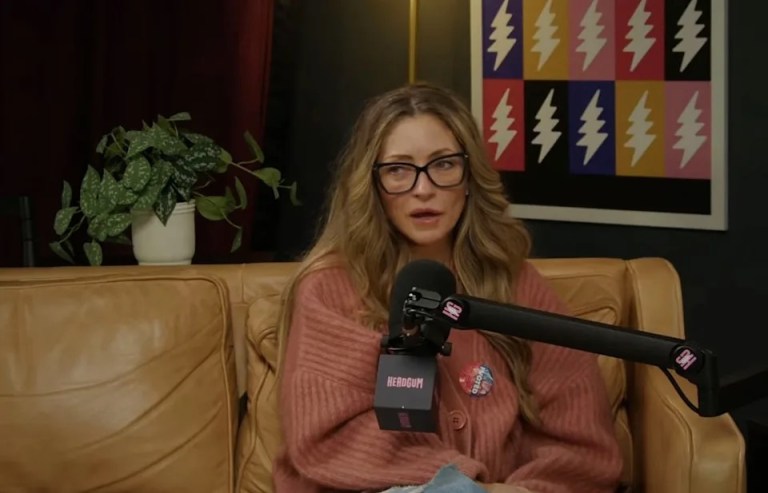
6 Movies To Watch When You Need To Feel Unstoppable
For every mountain you're trying to climb, there's a movie that proves you can do it.
By ![]() Mishal Zafar
Mishal Zafar
Get ready to be inspired by six unforgettable stories about people who defied the odds and refused to be defeated.
Ever have one of those weeks where everything feels uphill? That’s when certain movies become essential viewing — not just any movies, but the ones that grab you by the shoulders and remind you that humans are capable of incredible things. These six films aren’t feel-good fluff; they’re raw, honest stories about people who found a way forward when the path disappeared. Perfect for those moments when you need proof that being unstoppable isn’t some superhuman trait — it’s a choice we all have access to.
The Shawshank Redemption (1994)
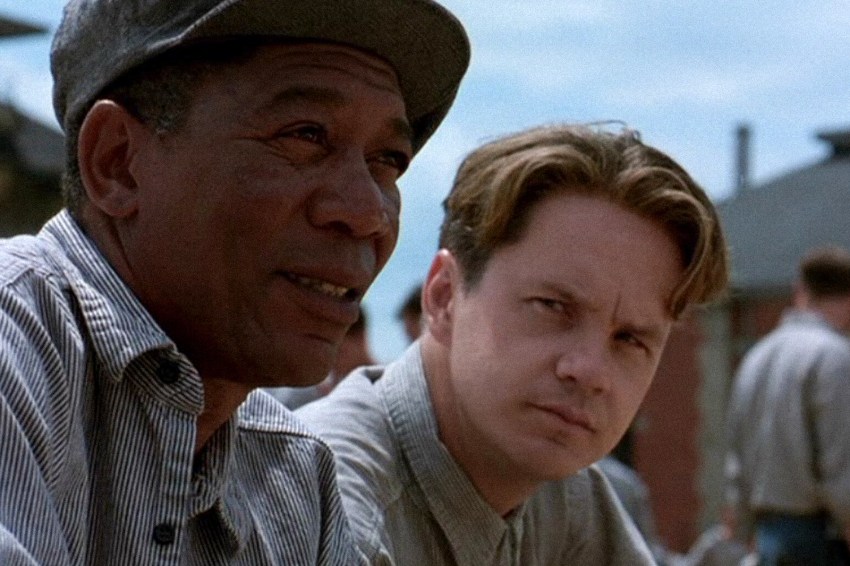
Andy Dufresne gets dealt the worst possible hand — life in prison for murders he didn’t commit. But here’s the thing about this movie: Andy never tries to convince anyone he’s innocent. He just starts living like hope matters. Building that library brick by brick, teaching Tommy to read, helping the warden with his taxes (okay, that one backfires spectacularly).
Andy’s not plotting his escape from day one. He’s just refusing to let Shawshank turn him into another broken lifer. That tunnel he digs for nineteen years isn’t just about getting out — it’s about staying human in a place designed to crush your spirit. By the time he crawls through that sewage pipe into freedom, you realize the escape was almost secondary. He’d already won the more important battle: keeping his soul intact. Makes you think about what walls you might be accepting as permanent when they’re really just temporary obstacles.
Rocky (1976)
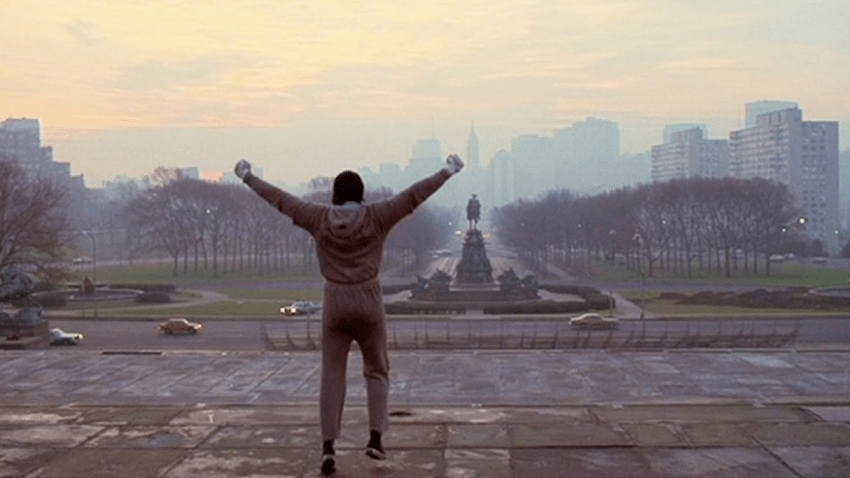
Sure, Rocky Balboa isn’t winning any IQ tests. But when Apollo Creed’s team picks him for a publicity stunt — “The Italian Stallion” versus the champ — Rocky does something nobody expects. He takes it seriously.
Those training montages everyone remembers? They’re not about Rocky becoming some boxing genius overnight. They’re about a guy who’s been told his whole life he’s a bum deciding to find out what happens if he actually tries. Raw eggs for breakfast, punching meat in a freezer, running up those Philadelphia museum steps—it’s all ridiculous and perfect. The fight itself almost doesn’t matter. What matters is Rocky proving to himself (and to Adrian) that he’s more than just another tough guy from the neighborhood. Win or lose, he’s already accomplished something bigger: he showed up.
Erin Brockovich (2000)
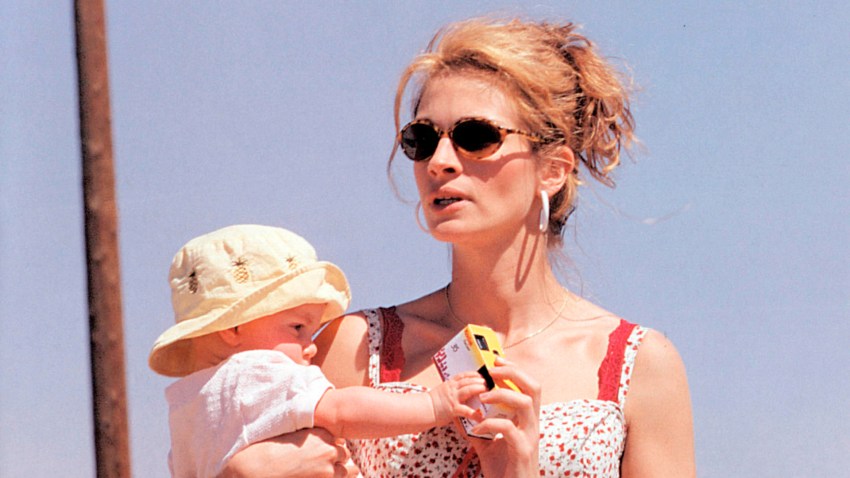
Erin walks into that law office in a push-up bra and a short skirt, and everyone writes her off immediately. Single mom, no legal training, attitude problem — not exactly what you’d expect from someone about to take down Pacific Gas & Electric. But that’s exactly why she succeeds where the suits fail.
She doesn’t talk down to the Hinkley residents like they’re case numbers. She sits in their kitchens, listens to their stories, remembers their kids’ names. When PG&E’s lawyers try to intimidate her with their fancy degrees and corporate doublespeak, she hits back with something they can’t counter: she actually gives a damn. The best scene? When she stands up in that conference room full of corporate lawyers and tells them exactly how their client poisoned an entire town. No legal jargon, no hedging — just the truth, delivered by someone who refuses to be dismissed. Sometimes the most dangerous person in the room is the one everyone underestimated.
The Pursuit of Happyness (2006)
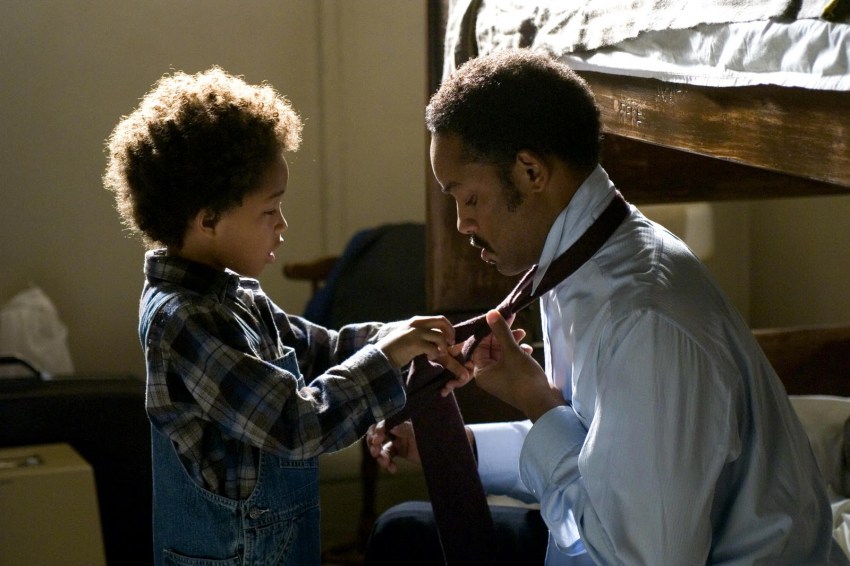
This movie guts you because it shows what broke actually looks like. Chris Gardner isn’t some romanticized struggling artist — he’s a guy sleeping in subway bathrooms with his five-year-old son because they have nowhere else to go. The unpaid internship at a brokerage firm? One spot available out of twenty candidates, and Chris is doing it while homeless.
What destroys viewers every time is how Chris never lets his son see him break. They play that game where the bathroom is a cave, and they’re hiding from dinosaurs. Meanwhile, Chris is calculating how to stretch their last few dollars and wondering if Child Protective Services is going to take away the only thing that matters to him. But he keeps showing up to work in the same shirt he slept in, keeps studying for the broker exam, keeps believing that competence and persistence have to count for something. That final scene when he finds out he got the job? The way Will Smith’s face just crumbles with relief — that’s what real victory looks like after you’ve lost everything else first.
Hidden Figures (2016)
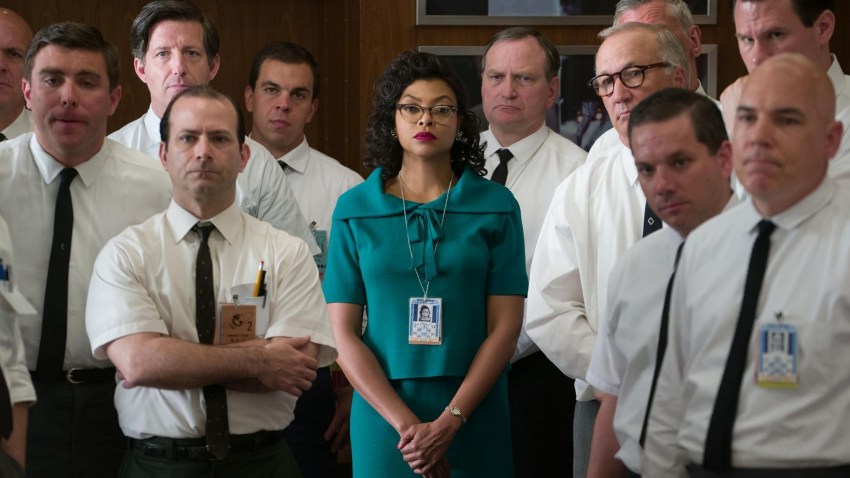
Katherine Johnson is probably the smartest person in every room she enters, but that doesn’t stop her white male colleagues from treating her like she’s invisible. Or worse — like she’s there to fetch coffee instead of calculating rocket trajectories. The same goes for Dorothy Vaughan and Mary Jackson, brilliant women stuck in “colored computers” jobs while their talents go to waste.
But here’s what’s brilliant about these three: they don’t wait for permission to be excellent. Katherine starts showing up to those all-male briefings and just starts solving problems nobody else can crack. Dorothy teaches herself programming because she sees IBM computers coming and knows someone needs to speak their language. Mary fights the court system for the right to take engineering classes at a segregated school. They’re not trying to make statements — they’re just insisting on being judged by their work instead of their skin color or gender. The space program literally couldn’t succeed without them, and they know it. Sometimes the best way to break barriers is to be so indispensably good at what you do that the barriers become irrelevant.
The Matrix (1999)
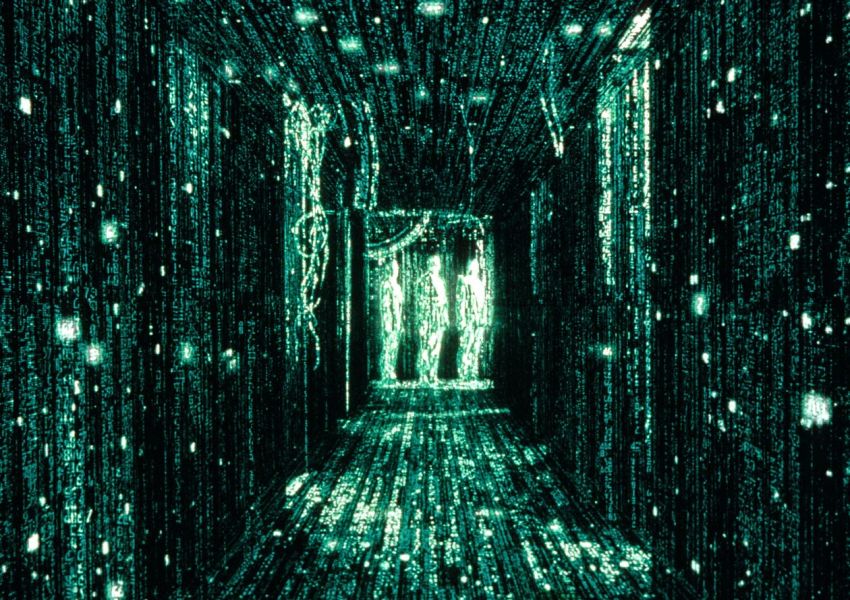
Neo spends his days as Thomas Anderson, office drone, following rules that don’t make sense and accepting a reality that feels wrong in ways he can’t articulate. Then Morpheus offers him a choice that every viewer wishes they could make: see the truth, even if it’s terrifying, or stay comfortable in the lie.
What makes Neo’s journey so satisfying isn’t the cool special effects (though bullet-time is still pretty sweet). It’s watching someone discover that everything holding them back was just programming. The spoon doesn’t bend because you force it — it bends because you realize there is no spoon. Neo becomes “The One” not through some genetic lottery, but by fundamentally changing how he sees himself and what’s possible. That final scene where he stops the bullets? That’s not about superpowers — that’s about someone finally understanding their own potential. Makes you wonder what invisible barriers you’re accepting as real when they might just be outdated software running in your head.


